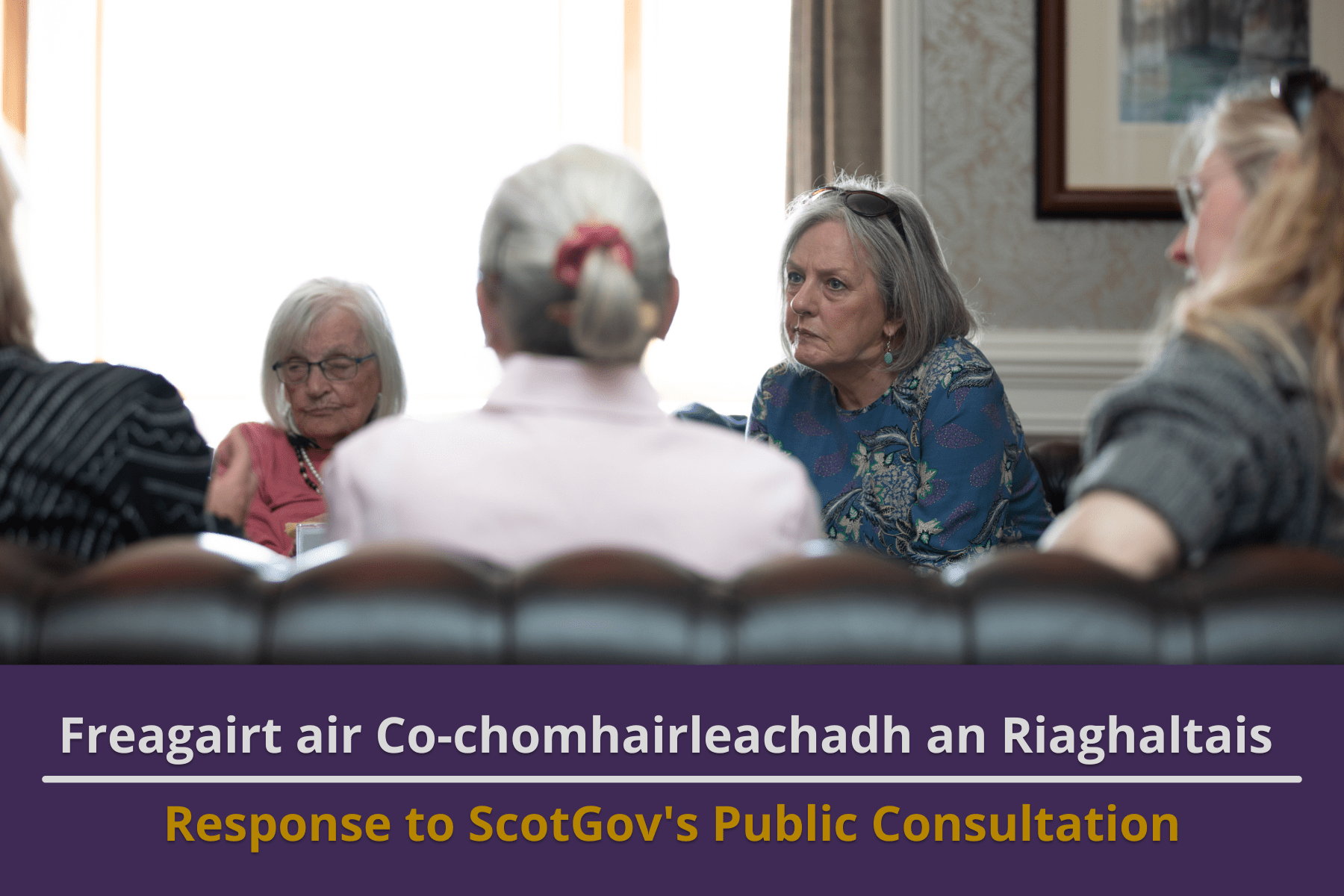Bòrd na Gàidhlig response to Scottish Government’s Consultation on Gaelic and Scots and Scottish Languages Bill

Màiri MacInnes, Chair of Bòrd na Gàidhlig, said: “We welcome the Scottish Government’s consultation and their ongoing commitment to Gaelic, which aligns to our own ambitions for the language. We recognise the importance of all Scotland’s indigenous languages and their contribution to the cultural diversity of the nation and support measures for Scots within this consultation.
“The evidence from the recent Scottish Social Attitudes Survey shows that support and demand for the Gaelic language continues to be on the rise, particularly among the younger generations, which will be a significant step in progressing normalisation of the language.”
“More and more families are seeking Gaelic-medium Education and a majority of Scottish Local Authorities are now providing or are in the process of setting up Gaelic-medium Primary Education. The latest figures show a 21% increase in the number of Primary school children in Gaelic-medium Education and a 16% increase in the number of Secondary School pupils in Gaelic-medium in the last five years. We firmly believe the new national strategy needs to be led from ministerial level to provide national direction and implementation, with Gaelic education firmly embedded in the new education agencies. Parental rights to Gaelic-medium education should be expanded and the opportunity to learn Gaelic should be available to all pupils in Scotland through the 1 + 2 Programme as part of an entitlement to learn about Scotland’s rich cultural heritage, which includes the Gaelic language and culture.”
“We recommend that the National Plan for Gaelic remains the strategy for developing Gaelic in Scotland. We also recommend that the legal status of Gaelic is strengthened through new Scottish Languages Bill. These will be pivotal in ensuring that Scotland continues to increase the use and learning of Gaelic nationally.
“We look forward to working with Scottish Government and other stakeholders to inform the next steps in developing a draft bill through the parliamentary process. We would also encourage others to submit a response.”
View the full submission here.
